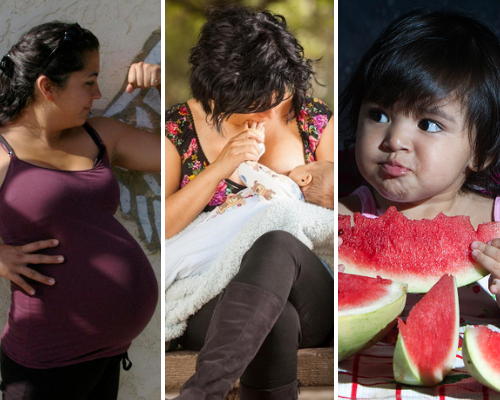June in Review: Building Healthier Futures in the First 1,000 Days
All month long we’ve been getting back to the basics on why the 1,000 days between a woman’s pregnancy and her child’s 2nd birthday are so important. Nutrition during this time plays a foundational role in promoting the health and well-being of women and their children. However, here in the U.S. and around the world, too many moms and babies are not getting the nutrition they need to thrive.
This month, a few bright spots have shown just how important the 1,000-day window of opportunity really is – and that healthier futures for moms and babies are possible. We’d like to highlight a couple.
Obesity rates fell among young children in the WIC program
New data from the U.S. Centers for Disease Control and Prevention (CDC) show that obesity is declining among young children enrolled in the Special Supplemental Nutrition Program for Women, Infants and Children (WIC). In 2010, approximately 16% of WIC 2-4-year-olds were obese, but this number fell to about 14% in 2016. Even though some groups of children are still more likely to be obese than others, the rates of obesity declined for children of all races/ethnicities.
Although the CDC does not measure obesity rates among the youngest WIC participants, the decline in obesity among 2-4-year-olds reflects the strong foundation that is being set during the first 1,000 days. More than 1 in 3 mothers in the U.S. receives food from WIC during pregnancy, and nearly half of all babies are served by WIC. Research shows that what we eat during pregnancy and the first 2 years of life sets the stage for lifelong eating habits and health.
WIC provides low-income families with critical assistance to help support their health and well-being. Moms and their children can receive healthy foods, nutrition counseling, breastfeeding support and referrals for other services – all of which can help them get the nutrition and care they need to be healthy and thriving now and in the future.
CDC highlighted the window of opportunity in the first 1,000 days
Also in June, the CDC shined a spotlight on the importance of nutrition in the first 1,000 days through their Public Health Grand Rounds. During the session, experts explored how a woman’s nutrition during the first 1,000 days can affect her own health and that of her child, identified strategies to support women to breastfeed and offered recommendations regarding an infant’s transition to the family diet.
Individuals from around the country – and the world! – tuned in to learn more. According to the CDC, the webcast event was viewed in 31 states and 25 foreign countries.
As part of the event, 1,000 Days’ Executive Director Lucy Sullivan was interviewed on how nutrition impacts moms and babies every day. She discussed weight gain during pregnancy, the benefits of breastfeeding for both mother and child and babies’ introductions to first foods. Want to hear more? The interview can be viewed here.
This month and every month, we have seen how powerful the first 1,000 days can be in building brighter, healthier futures.








